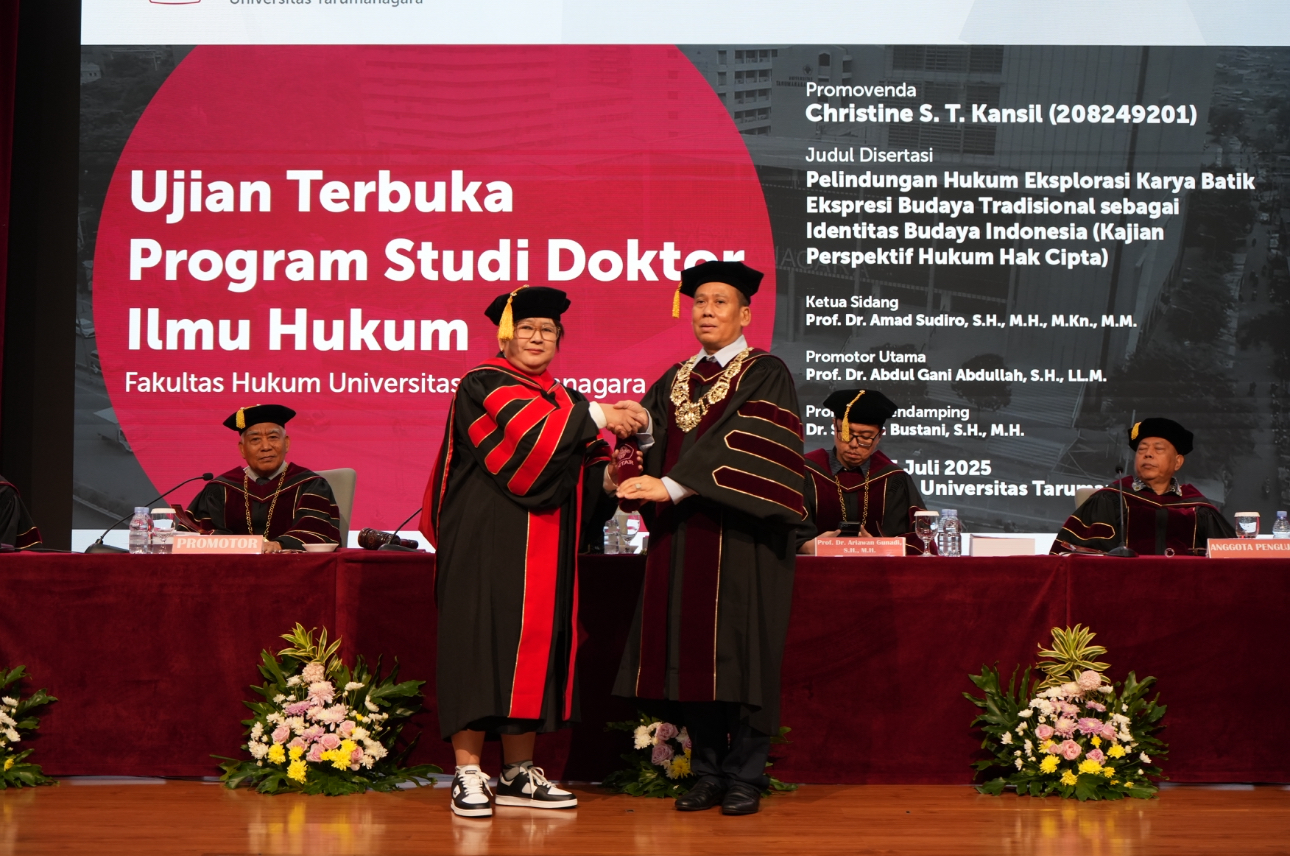Source: Untar Public Relations – VC
Christine S. T. Kansil earned her Doctorate in Law from Untar after successfully defending her dissertation during an open session on Tuesday (15/07/2025) at Untar Campus I.
The doctoral promotion session was chaired by Prof. Dr. Amad Sudiro, S.H., M.H., M.Kn., M.M., who serves as both the Rector of Untar and the Dean of the Faculty of Law. The main promoter of the dissertation was Prof. Dr. Abdul Gani Abdullah, S.H., LL.M., with Dr. Simona Bustani, S.H., M.H. and Prof. Dr. Mella Ismelina F.R., S.H., M.Hum. serving as co-promoters.
In her dissertation titled “Legal Protection of Batik Artwork Exploration as Traditional Cultural Expression and Cultural Identity of Indonesia (A Study from the Copyright Law Perspective),” Christine examined the legal protection of traditional batik using a normative juridical approach, based on legal principles and norms within existing legislation.
The key regulations referenced in the study include Law Number 28 of 2014 on Copyright, Ministry of Education and Culture Regulation Number 106 of 2013 on Intangible Cultural Heritage of Indonesia, and Law Number 5 of 2017 on the Advancement of Culture. The main focus of the research is the designation of batik as an intangible cultural heritage, which plays a strategic role in strengthening Indonesia’s national identity.
Christine, who became the 46th doctoral graduate from the Doctoral Program in Law at Untar, explained that cultural identity is defined as a distinctive characteristic that reflects the nation’s identity, shaped by the diversity of ethnicities, languages, religions, arts, traditions, and noble values. This identity is also the result of interaction and assimilation of local cultures, forming a rich diversity. Every nation must have a unique cultural identity as its hallmark in order to be recognized and appreciated on the global stage.
“Indonesia, as a country located at a strategic geographic point and surrounded by various continents and nations, has long been a route for international trade. This condition has encouraged cultural acculturation, yet Indonesia has remained steadfast in preserving its identity. One widely recognized form of Indonesia’s cultural identity is batik, which has gained international recognition,” she continued.
Within the framework of legal protection, batik is examined through the perspective of Intellectual Property Rights (IPR), particularly copyright. According to copyright theory, every creator inherently holds rights over the works they produce. Ownership of batik is considered hereditary and is inherently attached to its creator.
Through her dissertation, Christine, who is also a lecturer at Untar’s Faculty of Law, emphasized that legal protection of batik is an important step in preserving the nation’s cultural heritage while strengthening Indonesia’s national identity amid global challenges.
Christine graduated with the distinction of With High Honors. (VC/AJ/YS)


